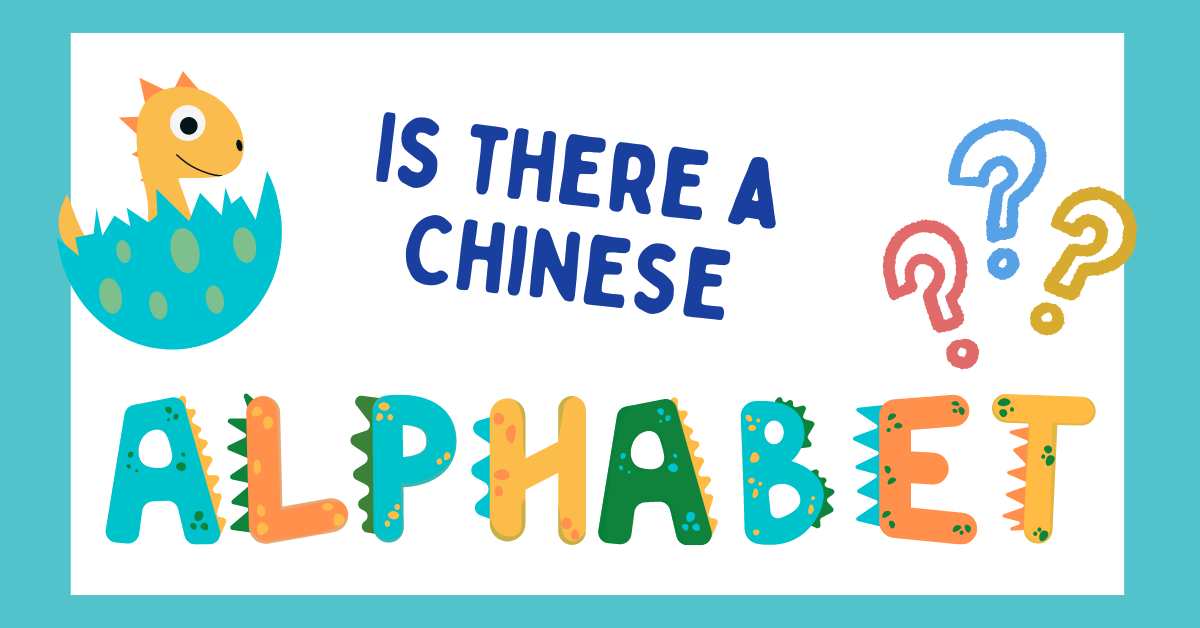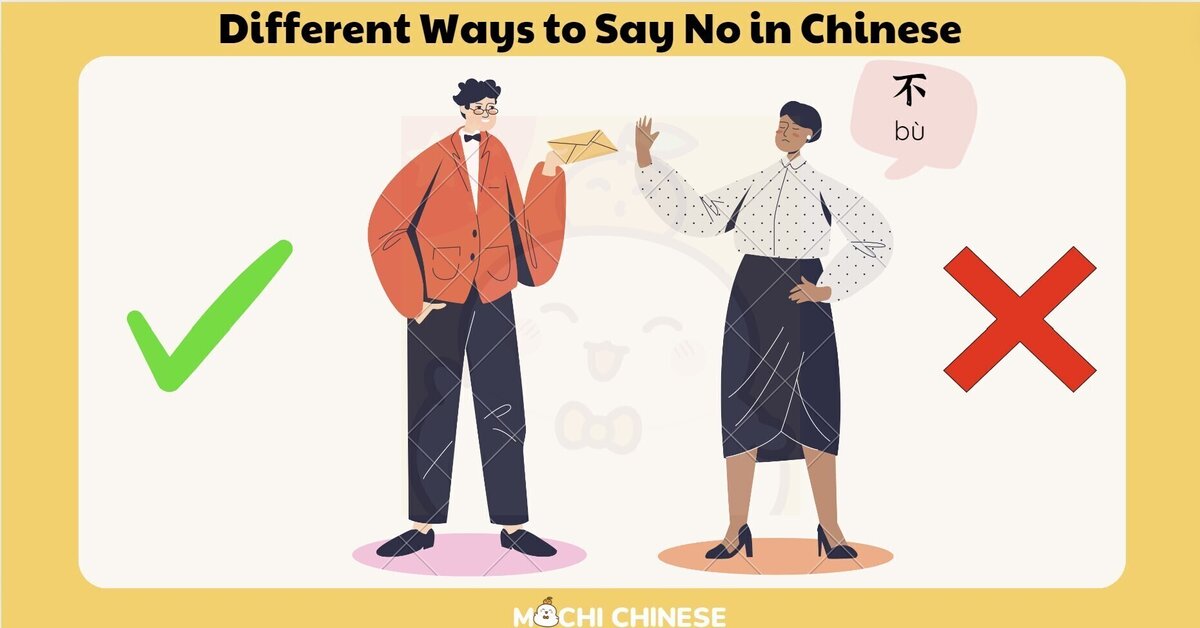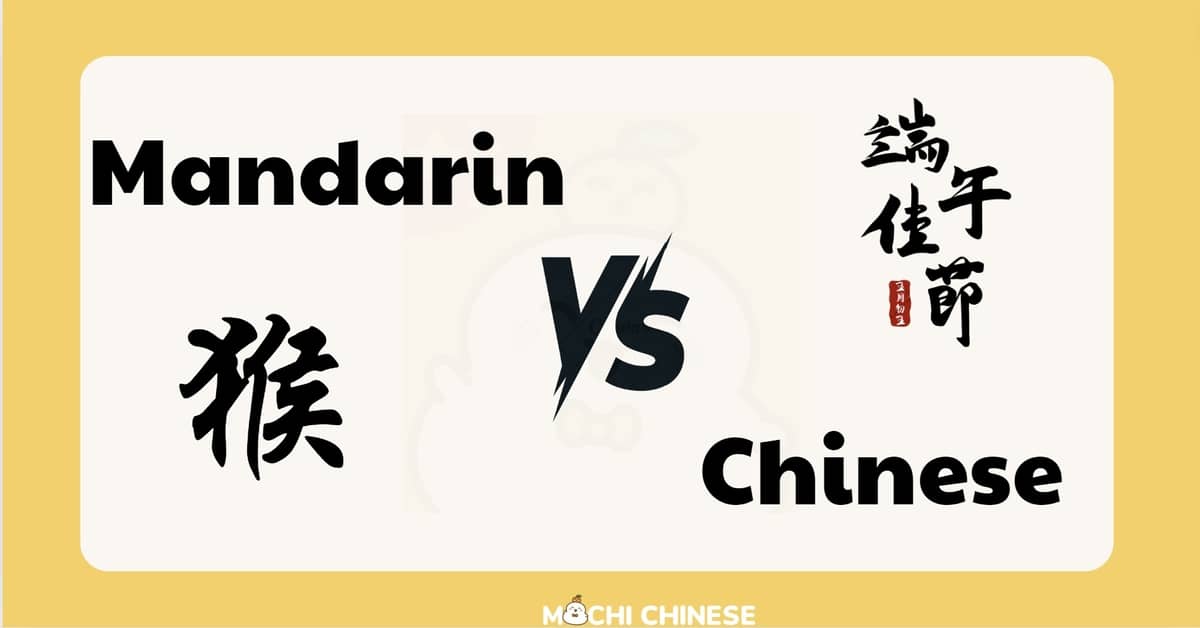Hello! If you’re diving into the Chinese language, mastering thank you in Chinese is a must. It’s more than politeness—it’s a bridge to understanding culture and building relationships. So, let’s break down ten different ways to express gratitude in Chinese, making sure you’re prepared for any situation, from casual hangouts to formal meetings.
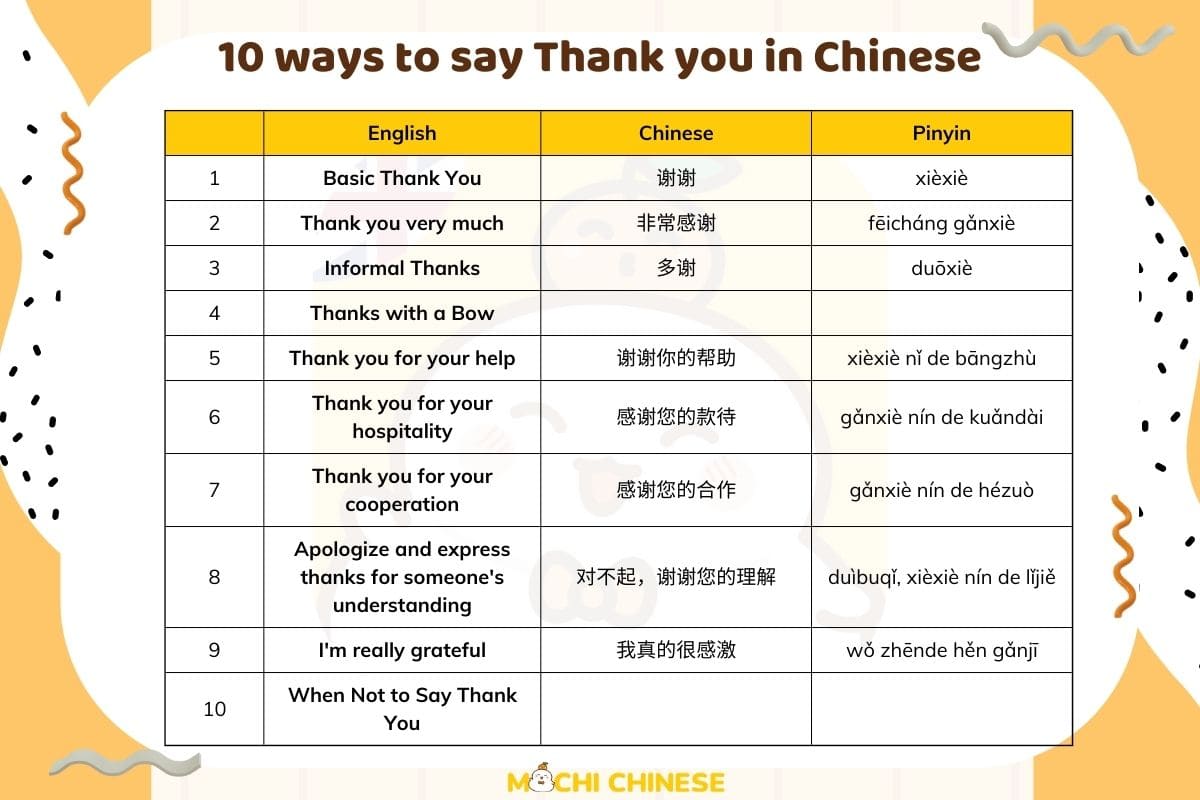
1. Basic Thank You in Chinese – 谢谢
The simplest and most essential phrase is “谢谢” (xièxiè). It fits almost all everyday situations where you need to say thanks. Picture yourself at a street market, buying some fruit, and the vendor hands you your change. A quick “谢谢” with a smile is perfect here. Easy, right? Just remember to keep your tone light and friendly.
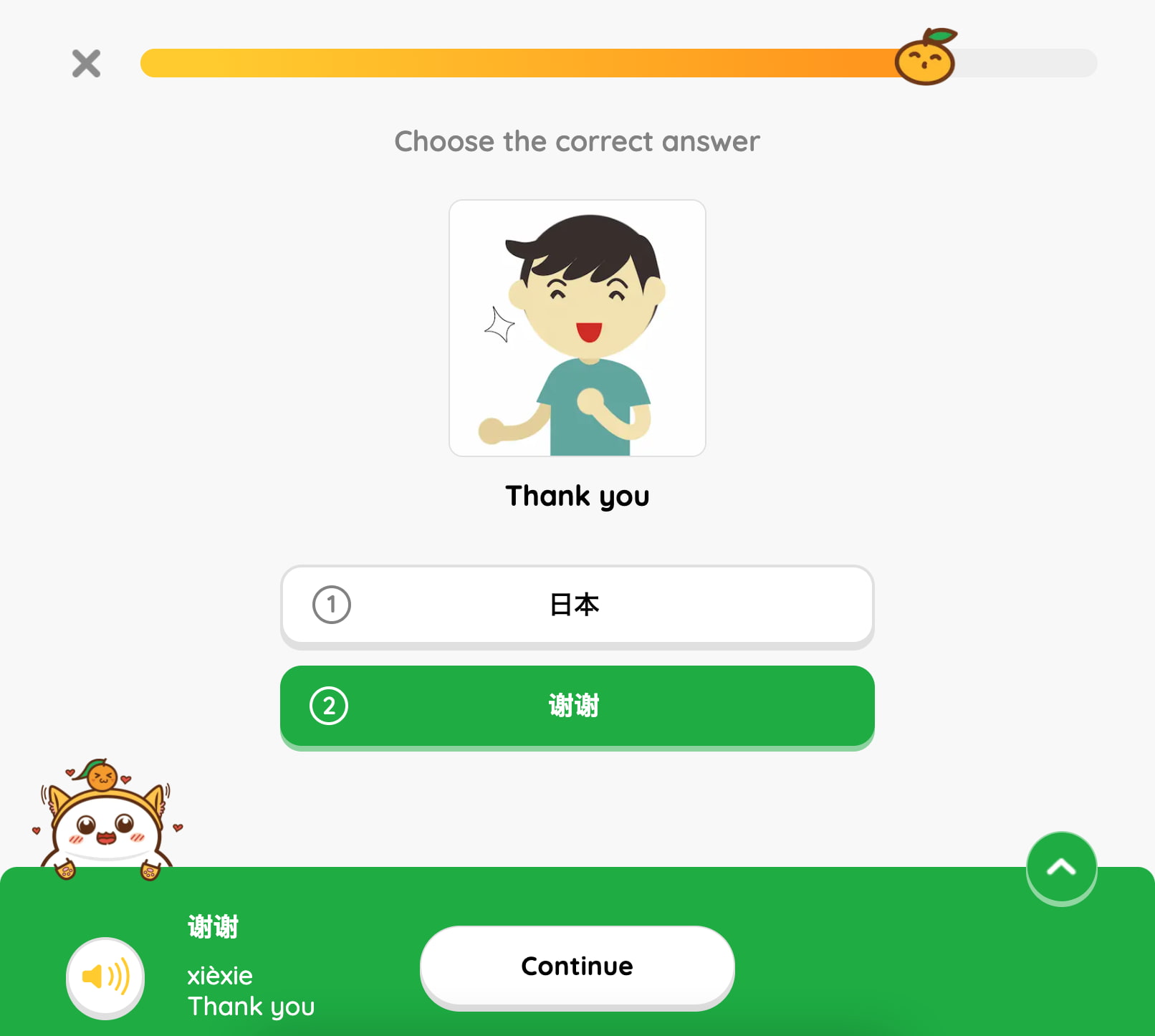
2. Formal Thank You in Chinese – 非常感谢
When the situation is more serious or you’re extremely grateful, elevate your thanks to “非常感谢” (fēicháng gǎnxiè). It translates to “thank you very much.” Let’s say you received a gift from your boss or a colleague went out of their way to help you with a project. This phrase shows deep appreciation and keeps things professional.
3. Informal Thanks in Chinese – 多谢
For a chill vibe with friends or younger people, “多谢” (duōxiè) or “谢了” (xièle) are your go-tos. Imagine you’re at a karaoke night and someone shares their mic with you—throwing out a casual “多谢” fits perfectly and keeps the atmosphere light and fun.
4. Thanks with a Bow
In very respectful contexts, such as thanking an elder or someone you highly respect, combine your thanks with a slight bow. It’s not just about the words; it’s about showing respect through your actions. When I thanked my Chinese teacher at the end of the semester, adding a bow to my “谢谢” really showed my gratitude and respect for her teaching.
5. Thankful for a Favor – 谢谢你的帮助
If someone goes the extra mile to assist you, specify what you’re thankful for: “谢谢你的帮助” (xièxiè nǐ de bāngzhù – Thank you for your help). This makes your gratitude more personal and meaningful. For example, if a neighbor helps you fix a flat tire, this phrase would perfectly express your appreciation for their specific action.
6. Thanking a Host – 感谢您的款待
After enjoying someone’s hospitality, such as a dinner or an overnight stay, use “感谢您的款待” (gǎnxiè nín de kuǎndài – Thank you for your hospitality). This formal thank you acknowledges their effort and care in making you feel welcome and comfortable.
7. Professional Gratitude – 感谢您的合作
In a work setting, particularly after completing a project or collaboration, “感谢您的合作” (gǎnxiè nín de hézuò – Thank you for your cooperation) is appropriate. It not only thanks the person but also reinforces the professional bond and acknowledges their contribution to the success of the endeavor.
8. Gratitude in an Apology – 谢谢您的理解
When you need to apologize and express thanks for someone’s understanding, say “对不起,谢谢您的理解” (duìbuqǐ, xièxiè nín de lǐjiě). This phrase is crucial when you’ve inconvenienced someone, and you need to acknowledge their patience. It shows you’re aware of the impact of your actions and grateful for their forbearance.
9. Expressing Heartfelt Thanks – 我真的很感激
For deeply heartfelt gratitude, you might say “我真的很感激” (wǒ zhēnde hěn gǎnjī – I’m really grateful). Use this when you are deeply moved or appreciative beyond a casual thank you. Perhaps after a friend supports you through tough times, this phrase would convey the depth of your gratitude.
10. Cultural Tip: When Not to Say Thank You
Interestingly, in Chinese culture, saying thank you can sometimes seem too formal or distant among close friends and family. It’s like saying thank you for passing the salt at dinner—it might feel strange and overly formal. It’s important to gauge the relationship and the situation to decide whether a verbal thanks is necessary or if a warm smile or nod is enough.
Conclusion
Now you’re equipped with ten different ways to say thank you in Chinese, covering everything from casual interactions to heartfelt appreciation. Each phrase has its place, and knowing when to use each can really enhance your communication and relationships in Chinese-speaking environments. Keep practicing, and soon these phrases will come as naturally to you as saying “thank you” in your native language!
Build your Chinese vocabulary to enhance your ability to communicate fluently. Gathering new words is akin to collecting precious gems on your linguistic journey. Begin by delving into aspects of Chinese culture you enjoy, such as music or films, and note down any unfamiliar terms. Platforms like Mochi Chinese offer a rich source for expanding your vocabulary. The more terms you learn, the more robust your Chinese vocabulary will become.
Mochi Chinese utilizes the Spaced Repetition System to effectively increase your memory retention of vocabulary by introducing reviews at strategically timed intervals. As you go through the words in your deck, the SRS algorithms adjust the review frequency based on your recall ability. This means that words which are more challenging for you will come up more often, whereas the ones you know well will appear less frequently. This targeted approach helps concentrate your study efforts on areas that need the most attention, thereby enhancing your overall learning efficiency.
Remember, language learning is not just about words—it’s about understanding culture and context. The more you practice, the more naturally you’ll find yourself navigating social interactions in Chinese. Good luck, and 谢谢 for reading!

